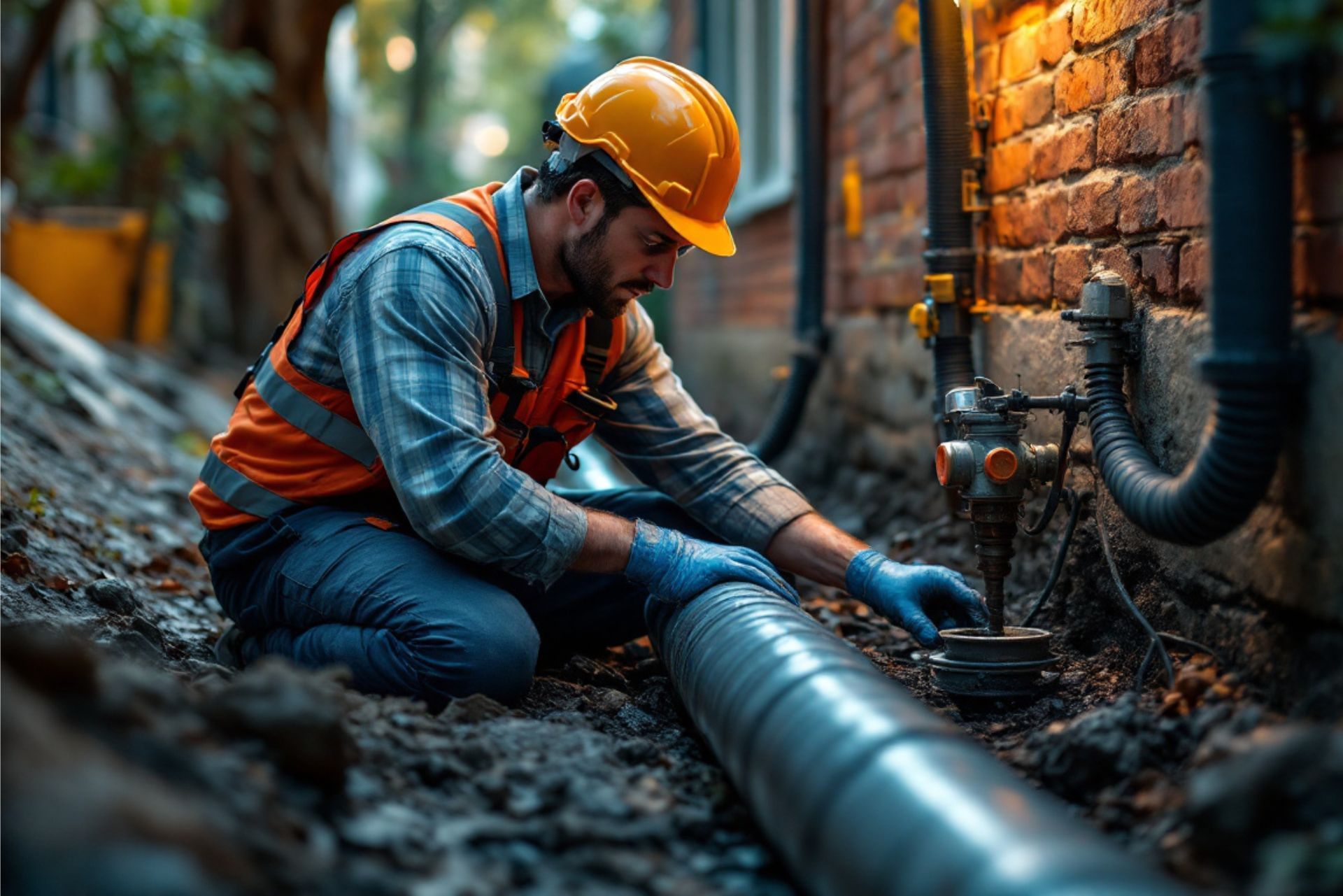Index
Understanding the Importance of Insurance for Sewer Line Repair Specialists
Types of Insurance Coverage for Sewer Line Repair Specialists
Factors Influencing Insurance Costs
Choosing the Right Insurance Provider
The Claims Process: What to Expect
Common Misconceptions About Insurance for Sewer Line Repair Specialists
Contact Us
Phone
Location
Simi Valley, CA 93065
The Woodlands, TX 77382
Katy, TX 77494
Sewer line repair specialists play a crucial role in maintaining the integrity of plumbing systems. However, like any other profession, they face various risks that can lead to significant financial losses. This is where insurance comes into play. Understanding the different types of insurance available, the specific needs of sewer line repair specialists, and how to choose the right coverage is essential for anyone in this field. This article aims to provide comprehensive insights into sewer line repair specialist insurance.
Understanding the Importance of Insurance for Sewer Line Repair Specialists
Insurance is not just a safety net; it is a vital component of running a successful business. For sewer line repair specialists, the risks are unique and can arise from various factors, including equipment failure, accidents on the job site, and potential legal claims from clients.
Protection Against Liability
One of the primary reasons sewer line repair specialists need insurance is to protect against liability. If a technician accidentally damages a client's property or causes injury while working, the financial repercussions can be devastating. Liability insurance covers legal fees, medical expenses, and any settlements or judgments that may arise from such incidents.
Moreover, having liability insurance can enhance a company's reputation. Clients are more likely to hire a contractor who is insured, as it demonstrates professionalism and a commitment to responsible business practices. This trust can lead to repeat business and referrals, which are essential for growth in a competitive market. Additionally, many clients, especially commercial entities, may require proof of insurance before awarding contracts, making it a prerequisite for securing larger projects.
Coverage for Equipment and Tools
Sewer line repair requires specialized tools and equipment, which can be expensive. Insurance can provide coverage for these assets against theft, damage, or loss. This is particularly important for specialists who rely on their equipment to complete jobs efficiently and effectively.
In addition to protecting physical assets, insurance can also cover the costs associated with renting replacement equipment while repairs are being made. This ensures that a business can continue to operate smoothly without significant financial strain. Furthermore, some insurance policies may offer coverage for tools that are lost or damaged during transit, which is a common risk for professionals who travel to various job sites. This comprehensive coverage not only safeguards the business's financial health but also allows specialists to focus on their work without the constant worry of unforeseen expenses related to equipment mishaps.
Employee Protection and Workers' Compensation
Another critical aspect of insurance for sewer line repair specialists is workers' compensation. Given the hazardous nature of the work, employees face risks that can lead to injuries, such as slips, falls, or exposure to harmful substances. Workers' compensation insurance provides coverage for medical expenses and lost wages for employees who are injured on the job, ensuring that they receive the necessary care without placing a financial burden on the business.
Additionally, offering workers' compensation can foster a safer work environment. When employees know they are protected, they may feel more secure and valued, leading to increased morale and productivity. This can also reduce turnover rates, as workers are more likely to stay with a company that prioritizes their well-being. Investing in comprehensive insurance not only protects the business but also builds a loyal and dedicated workforce that is essential for long-term success.

Types of Insurance Coverage for Sewer Line Repair Specialists
There are several types of insurance coverage that sewer line repair specialists should consider. Each type addresses different aspects of the business and provides varying levels of protection.
General Liability Insurance
General liability insurance is essential for any contractor, including sewer line repair specialists. This type of insurance protects against claims of bodily injury, property damage, and personal injury. For instance, if a client trips over equipment left on-site and sustains an injury, general liability insurance would cover the associated costs.
Additionally, this insurance can cover legal fees if a claim is disputed, making it a critical component of a contractor's insurance portfolio. It also extends to cover damages caused by the contractor's operations, such as if a sewer line repair inadvertently causes flooding in a client's basement. This comprehensive protection ensures that specialists can operate with confidence, knowing they are safeguarded against unforeseen incidents that could otherwise jeopardize their business.
Workers' Compensation Insurance
For businesses that employ workers, workers' compensation insurance is not just advisable; it is often required by law. This insurance provides coverage for medical expenses and lost wages if an employee is injured on the job. Given the physical nature of sewer line repair work, the risk of injury is significant, making this coverage vital.
Workers' compensation insurance not only protects employees but also protects the business from potential lawsuits stemming from workplace injuries. It can also include rehabilitation benefits, which assist injured workers in returning to their jobs or finding new employment if they are unable to continue in their previous roles. This aspect of coverage fosters a supportive work environment, demonstrating that the business values its employees' well-being and is committed to their recovery and reintegration into the workforce.
Commercial Auto Insurance
Sewer line repair specialists often rely on vehicles to transport equipment and reach job sites. Commercial auto insurance is crucial for protecting these vehicles and the individuals operating them. This insurance covers damages resulting from accidents, theft, or vandalism.
Additionally, commercial auto insurance can provide liability coverage in the event of an accident involving a company vehicle, ensuring that the business is protected against financial losses associated with such incidents. This type of insurance can also cover medical expenses for injuries sustained by employees while driving for work purposes. Furthermore, many commercial auto insurance policies offer additional features such as roadside assistance and rental reimbursement, which can be invaluable for maintaining operational efficiency in the event of vehicle breakdowns or accidents, allowing the business to continue serving clients without significant interruptions.
Factors Influencing Insurance Costs
The cost of insurance for sewer line repair specialists can vary widely based on several factors. Understanding these factors can help business owners make informed decisions when selecting coverage.
Business Size and Revenue
Generally, larger businesses with higher revenue may face higher insurance premiums. This is because larger operations often have more employees and equipment, leading to increased risk exposure. Conversely, smaller businesses may benefit from lower premiums, but they still need to ensure adequate coverage to protect their assets. Additionally, the scale of operations can influence the types of policies available; larger firms might require more comprehensive coverage options that address specific risks associated with extensive projects, while smaller firms may find more tailored, cost-effective solutions that suit their operational scale.
Claims History
A company’s claims history can significantly impact insurance costs. If a business has a history of frequent claims, insurers may view it as a higher risk, resulting in increased premiums. On the other hand, a clean claims history can lead to discounts and lower rates. Moreover, maintaining a proactive approach to risk management—such as implementing safety training programs and regular equipment maintenance—can help improve a company's claims history over time, potentially leading to more favorable insurance terms and even enhancing overall operational efficiency.
Location and Job Type
The geographical location where a sewer line repair specialist operates can also influence insurance costs. Areas with higher rates of accidents or natural disasters may lead to increased premiums. Additionally, the specific types of jobs undertaken—such as working in hazardous environments—can also affect rates, as they may increase the likelihood of claims. For instance, urban areas with older infrastructure may present unique challenges and risks, necessitating specialized coverage that accounts for the complexities of urban sewer systems. Furthermore, understanding local regulations and compliance requirements can also play a crucial role in determining insurance costs, as businesses that adhere to stringent safety standards may qualify for lower premiums due to reduced risk exposure.
Choosing the Right Insurance Provider
Selecting the right insurance provider is crucial for ensuring adequate coverage and support. Here are some key considerations when evaluating potential insurers.
Reputation and Experience
It is essential to choose an insurance provider with a solid reputation and experience in the construction or contracting industry. Researching customer reviews and testimonials can provide insight into the insurer's reliability and service quality.
Moreover, an experienced provider will have a better understanding of the specific risks associated with sewer line repair work and can offer tailored coverage options. They are more likely to have established relationships with industry professionals, which can lead to better claims handling and faster resolutions. Additionally, consider checking their financial stability through ratings from agencies like A.M. Best or Standard & Poor's, as this can indicate their ability to pay claims in the event of a loss.
Policy Options and Flexibility
Different businesses have different needs, so it is important to select an insurance provider that offers a variety of policy options. Look for insurers that allow customization of coverage to ensure that all aspects of the business are adequately protected.
Flexibility in policy terms can also be beneficial, especially for businesses that may need to adjust their coverage as they grow or change their service offerings. For instance, a contractor who starts with small residential projects may later expand into larger commercial contracts, necessitating a shift in coverage. Some providers also offer add-ons or endorsements that can enhance basic policies, such as coverage for equipment breakdown or professional liability, which can be crucial for protecting against unforeseen circumstances.
Customer Service and Support
Excellent customer service is a vital aspect of any insurance relationship. When selecting a provider, consider their responsiveness and willingness to assist with questions or claims. A provider that offers 24/7 support can be invaluable during emergencies or urgent situations.
Furthermore, the ease of accessing customer service can significantly impact your overall experience. Look for insurers that provide multiple channels for communication, such as phone, email, and live chat, as well as a user-friendly online portal for managing your policy. This accessibility can make a difference when you need immediate assistance or want to quickly file a claim. Additionally, consider whether the insurer offers educational resources or workshops to help you better understand your coverage and risk management strategies, as this can empower you to make informed decisions about your insurance needs.

The Claims Process: What to Expect
Understanding the claims process is essential for sewer line repair specialists to navigate potential issues effectively. Knowing what to expect can alleviate stress during challenging situations.
Reporting a Claim
The first step in the claims process is reporting the incident to the insurance provider. This typically involves filling out a claim form and providing detailed information about the incident, including date, time, location, and any witnesses. Prompt reporting is crucial, as delays can complicate the process.
It is also advisable to document the incident thoroughly, including photographs and written accounts, as this information can support the claim. Additionally, keeping a record of any communications with the insurance company can prove beneficial, as it provides a clear timeline and context for the claim. This documentation can also help in case of any disputes or misunderstandings that may arise later in the process.
Investigation and Assessment
Once a claim is reported, the insurance company will initiate an investigation to assess the validity of the claim. This may involve interviews, site visits, and gathering additional documentation. The insurer's goal is to determine the extent of the damage and the circumstances surrounding the incident.
During this phase, it is important for the sewer line repair specialist to remain cooperative and provide any requested information promptly to facilitate the investigation. Moreover, having a clear understanding of the repair work that was performed, including any relevant codes or regulations that were followed, can help clarify the situation for the insurer. This transparency not only aids in the investigation but also builds trust between the specialist and the insurance provider, which can be advantageous in future dealings.
Claim Resolution
After the investigation is complete, the insurance provider will make a determination regarding the claim. If approved, the insurer will outline the compensation process, which may include direct payments to the affected parties or reimbursement for expenses incurred.
In cases where a claim is denied, the insurer will provide an explanation, and the business may have the option to appeal the decision or seek legal counsel if necessary. Understanding the reasons for denial can be crucial for the sewer line repair specialist, as it may highlight areas where additional evidence or documentation is needed. Furthermore, engaging with an experienced claims adjuster can sometimes lead to a reevaluation of the claim, potentially resulting in a more favorable outcome. This proactive approach can be instrumental in ensuring that all aspects of the incident are thoroughly considered and that the specialist receives the support they need during this challenging time.
Common Misconceptions About Insurance for Sewer Line Repair Specialists
There are several misconceptions surrounding insurance for sewer line repair specialists that can lead to misunderstandings and inadequate coverage. Addressing these myths is essential for making informed decisions.
“I Don’t Need Insurance if I’m a Small Business”
Many small business owners believe that they do not need insurance because they operate on a smaller scale. However, even small businesses face significant risks that can lead to financial ruin without adequate coverage. Accidents can happen at any time, and the costs associated with them can be overwhelming.
“Insurance is Too Expensive”
While insurance costs can vary, the potential financial repercussions of not having coverage can far outweigh the expense of premiums. Additionally, many insurers offer flexible payment plans and discounts for bundling multiple policies, making it more affordable for businesses to obtain necessary coverage.
“I’m Covered by My Client’s Insurance”
Some sewer line repair specialists mistakenly believe that they are covered by their client's insurance. However, this is not always the case. Client insurance typically covers the property owner, not the contractor. Therefore, it is crucial for specialists to have their own insurance to protect against potential liabilities.
Conclusion
Insurance is a critical aspect of operating a successful sewer line repair business. By understanding the various types of coverage available, the factors influencing insurance costs, and how to choose the right provider, specialists can protect themselves and their businesses from unforeseen risks. Investing in adequate insurance not only safeguards financial stability but also enhances professionalism and client trust.
Ultimately, the right insurance coverage can provide peace of mind, allowing sewer line repair specialists to focus on what they do best—providing quality services to their clients. As the industry continues to evolve, staying informed about insurance options and requirements will ensure long-term success and sustainability.
Types of Plumber Insurance We Provide
Areas we serve




